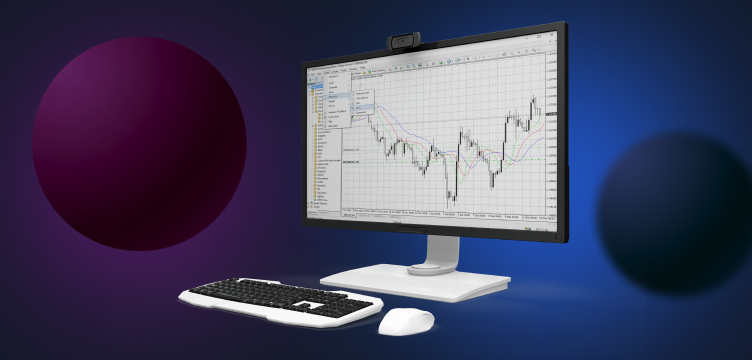In the electrifying world of forex trading, knowledge isn’t just power—it’s profit. Forex, short for foreign exchange, involves swapping one currency for another to capitalize on price changes. But, as exciting as it sounds, it’s not a process for the uninformed. Understanding the ins and outs of this market can mean the difference between financial triumph and costly setbacks. For aspiring traders and even seasoned pros, a solid grounding in forex education is essential. This blog post will explore how mastering forex education materials can significantly enhance your trading success.
The Crucial Role of Forex Education in Trading
Forex trading might seem straightforward at first glance, but the marketplace is complex and affected by a multitude of factors. To thrive, you need more than just luck; you need to be equipped with the right tools and knowledge. Forex education provides these tools, offering insights into market dynamics, economic indicators, and technical analysis. Having a comprehensive education helps traders make informed decisions rather than relying on guesswork. With proper training, you’ll understand how global events impact currency values, and learn to predict market movements with greater accuracy.
Another crucial aspect of forex education is risk management. Understanding risks and how to mitigate them is fundamental for anyone serious about trading. With education, traders learn to set stop-loss orders, diversify their portfolios, and allocate capital wisely. These strategies protect investments and ensure that even when trades don’t go as planned, losses are minimized. In short, forex education transforms trading from a gamble into a calculated venture.
Finally, education fosters discipline. It’s easy to become emotionally driven in trading, reacting impulsively to market fluctuations. With a strong educational foundation, traders develop the discipline to stick to their strategies, assess situations rationally, and remain patient. This discipline is often what separates successful traders from those who falter at the first hurdle.
Understanding Forex Market Fundamentals
Before you start trading, it’s essential to grasp the basics of how the forex market operates. The forex market is decentralized, meaning there is no centralized exchange. Instead, trading happens over-the-counter (OTC), facilitated by brokers. Knowing this structure helps traders understand why forex operates 24 hours a day across different time zones, offering unique opportunities—and challenges—at any hour.
Another fundamental concept is currency pairs. In forex, currencies are traded in pairs, with one currency being bought while the other is sold. For instance, in the EUR/USD pair, you’re buying euros while selling US dollars. Understanding how currency pairs work—majors, minors, and exotics—is crucial for any trader. It allows them to choose the right pairs to trade based on market conditions and their risk appetite.
Forex education also entails learning about leverage. Leverage means borrowing funds to increase potential returns. While it can amplify profits, it can also magnify losses. Proper education teaches traders how to use leverage cautiously, understanding both its benefits and its risks to avoid unnecessary exposure.
Key Components of a Forex Trading Strategy
Developing a robust trading strategy is vital in achieving long-term success in forex. A trading strategy encompasses a set of rules and guidelines that dictate how and when a trader will enter and exit trades. It can include technical analysis, fundamental analysis, or a combination of both.
Technical analysis involves studying past market data, primarily price and volume, using charts and indicators to forecast future price movements. Popular indicators include moving averages, RSI (Relative Strength Index), and MACD (Moving Average Convergence Divergence). These tools help traders identify trends and potential entry and exit points. Education helps traders understand which indicators suit their style and how to use them effectively.
Fundamental analysis, on the other hand, looks at the broader economic factors affecting currency values. This could include interest rates, inflation, and political stability. By understanding these elements, traders can anticipate currency movements based on economic news and data releases. A well-rounded forex education ensures traders can integrate both technical and fundamental analysis into their strategies.
Risk management is another component of a successful strategy. Effective risk management involves setting stop-loss and take-profit levels, maintaining a favorable risk-to-reward ratio, and determining position sizes. These elements safeguard capital and help traders stay in the game, even when markets move against them.
The Benefits of Continuous Forex Learning
Forex markets are dynamic and constantly evolving. To stay ahead, traders must commit to continuous learning. Educational resources like webinars, online courses, and workshops provide opportunities to expand knowledge and refine skills. Engaging with these resources keeps traders informed about new strategies and market developments.
Continuous learning also enhances adaptability. Markets can be unpredictable, and strategies that worked yesterday might not work today. By staying educated, traders can adapt to changing conditions and modify their approaches as needed. It also enables them to capitalize on new opportunities that arise from shifts in market trends or economic policies.
Ongoing education instills confidence. With a deep understanding of market behavior and trading principles, traders can make decisions with certainty and composure. This confidence reduces the emotional stress of trading, allowing individuals to focus on executing their strategies effectively without second-guessing every move.
Overcoming Common Forex Trading Challenges
Forex trading is not without its challenges. New traders often face issues such as information overload, emotional trading, and unrealistic expectations. Forex education helps overcome these hurdles by providing the knowledge and tools needed to trade efficiently.
Information overload is a common issue, as traders can easily become overwhelmed by the sheer volume of available data and indicators. Education helps traders filter through the noise and focus on the most relevant information. They learn to analyze data critically, using only what’s necessary to make informed decisions.
Emotionally-driven trading is another obstacle. Fear and greed can lead to irrational decisions, such as holding onto losing positions or abandoning a solid strategy out of panic. Forex education teaches traders to manage emotions, encouraging a disciplined approach to trading. Techniques like practicing with demo accounts and journaling trades can help build emotional resilience.
Finally, education helps set realistic expectations. Many new traders expect to get rich quickly, but forex is not a get-rich-quick scheme. Understanding the realities of trading, including risks and timeframes, prepares traders for the long haul, diminishing the likelihood of discouragement and burnout.
Practical Tips for Succeeding in Forex Trading
Success in forex trading requires more than just knowledge; it demands practice and perseverance. One practical step is to start small. Trading with a demo account or minimal capital allows beginners to learn without risking significant funds. This approach builds confidence and experience over time.
Another tip is to keep a trading journal. Recording trades, strategies, and outcomes helps traders learn from their mistakes and successes. Reviewing this journal can reveal patterns and insights that improve future performance.
Finding a mentor or joining a trading community can be incredibly beneficial. Engaging with experienced traders offers guidance, support, and different perspectives. Learning from others’ experiences can fast-track your development and expose you to new strategies and ideas.
Selecting the Right Forex Broker
Choosing the right broker is a critical decision for any forex trader. A reliable broker acts as a bridge between traders and the market, providing the platform, tools, and support necessary for trading. It’s essential to consider factors like regulation, fees, leverage options, and customer service when selecting a broker.
Regulation is paramount. A regulated broker adheres to industry standards and offers protection for traders’ funds. Look for brokers regulated by reputable authorities like the Financial Conduct Authority (FCA) or the National Futures Association (NFA).
Fees and spreads also matter. Some brokers charge commissions, while others operate on spreads. It’s important to understand these costs and how they impact profitability. Comparing fees across brokers ensures you choose one that aligns with your trading style and budget.
Consider the trading platform a broker offers. A user-friendly platform with robust features enhances the trading experience. It should provide tools for technical and fundamental analysis, real-time data, and a seamless interface. A demo account can be helpful to test a platform before committing.
Building a Winning Forex Trading Mindset
A successful forex trader requires more than just strategic knowledge; they need the right mindset. Forex trading can be a rollercoaster of ups and downs. Developing a winning mindset involves cultivating patience, resilience, and a positive attitude.
Patience is crucial. Trades won’t always go as planned, and results may take time to materialize. Rushing decisions or forcing trades can lead to mistakes. A patient trader waits for the right opportunities and sticks to their plan.
Resilience is equally important. Losses and setbacks are part of trading. Resilient traders bounce back from failures, learning and growing from each experience. They view losses as learning opportunities rather than defeats.
Maintaining a positive attitude keeps traders motivated and focused. It’s easy to become discouraged after a bad trade, but optimism fuels progress. Positive thinking fosters creativity and problem-solving, empowering traders to find solutions even in challenging situations.
The Future of Forex Trading
The forex market is continually evolving, driven by technological advancements and changing economic landscapes. Staying informed about these changes is vital for long-term success. Emerging technologies like artificial intelligence and machine learning are reshaping trading strategies and platforms.
AI and machine learning offer traders new tools for analyzing data and making predictions. These technologies can process vast amounts of information quickly, identifying patterns and trends that human traders might miss. Incorporating these advancements into your trading strategy can enhance decision-making and accuracy.
Cryptocurrencies are also influencing the forex market. Although separate, the rise of digital currencies impacts currency values and trading dynamics. Understanding the relationship between forex and cryptocurrencies opens doors to new trading opportunities.
Conclusion
Mastering the markets through forex education is an ongoing journey that requires dedication and continual learning. It equips traders with the skills, knowledge, and mindset needed to succeed in a dynamic and often unpredictable market. By investing in education, traders can approach forex with confidence, make informed decisions, and ultimately enhance their trading success. Remember, the key to thriving in forex trading lies in preparation, perseverance, and adaptability.

